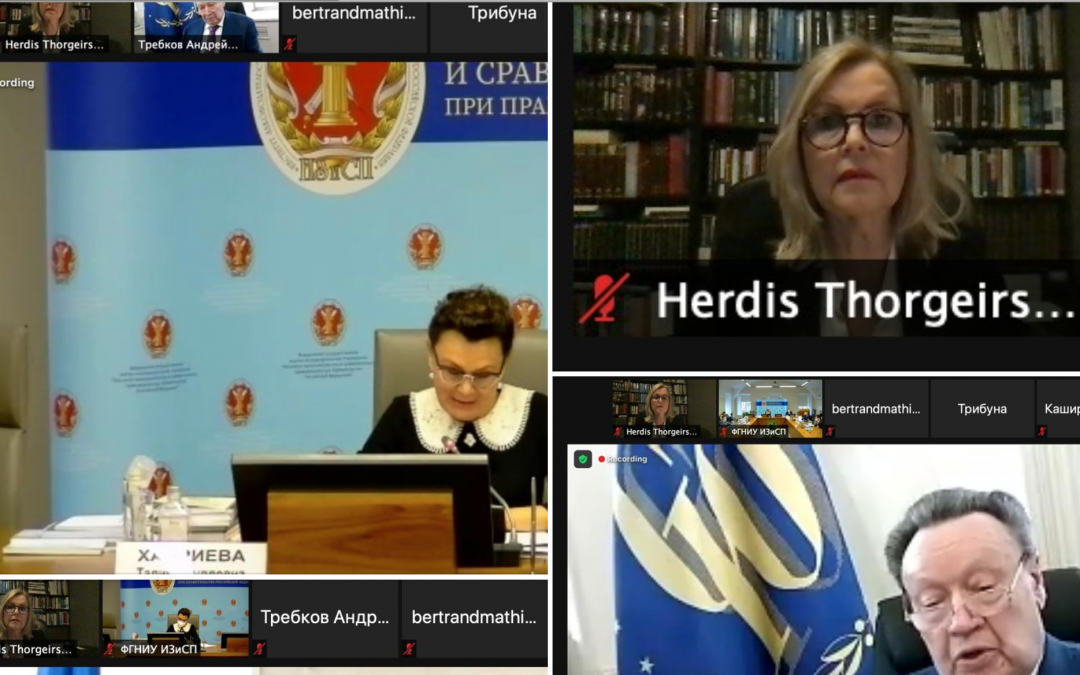
by Herdís Þorgeirsdóttir | 4.12.2020 | Almanak
Var með framsögu af hálfu Feneyjanefndar á fundi í Moskvu á vegum Stofnununar um samanburðarlögfræði sem heyrir undir stjórnvöld í Rússlandi. Efni fundarins var þróun á vettvangi stjórnskipunar í Rússlandi sem á alþjóðavettvengi. Erindi mitt fjallaði um mikilvægi þess að stjórnskipun byggði á grundvelli lýðræðis, réttarríkis og mannréttinda; að almenningur sem stjórnarskrágjafinn hefði aðkomu að mótun stjórnskipunar og breytingum á stjórnarskrám.
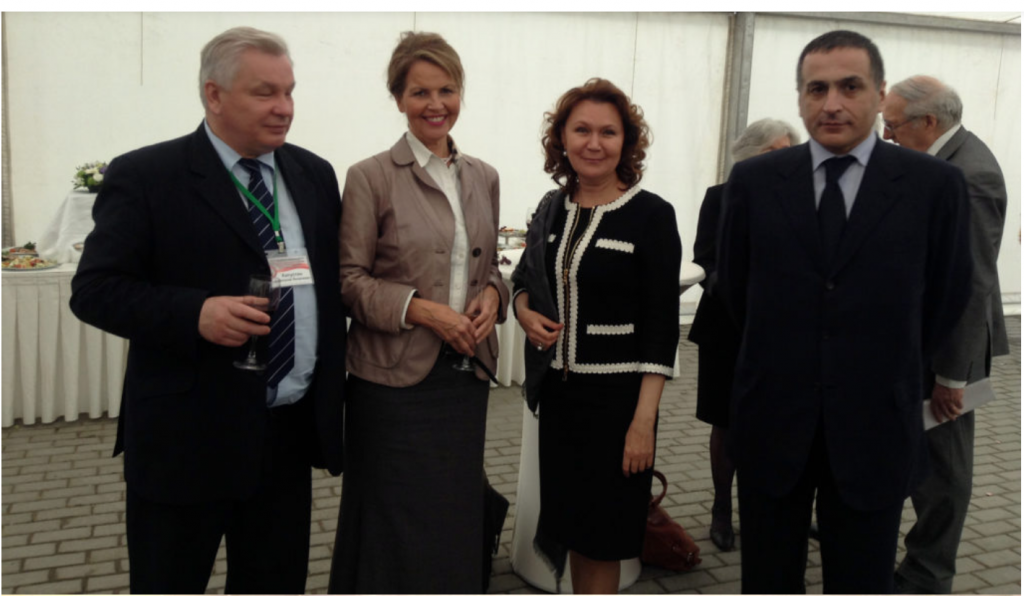
Ásamt Taliyu Khabrievu sem veitir forstöðu Lagastofnun um samanburðarlögfræði í Moskvu. Hún er þekktur lögfræðingur og hefur starfað með mér í Feneyjanefndinni um árabil. Myndin er tekin í Moskvu 2014.
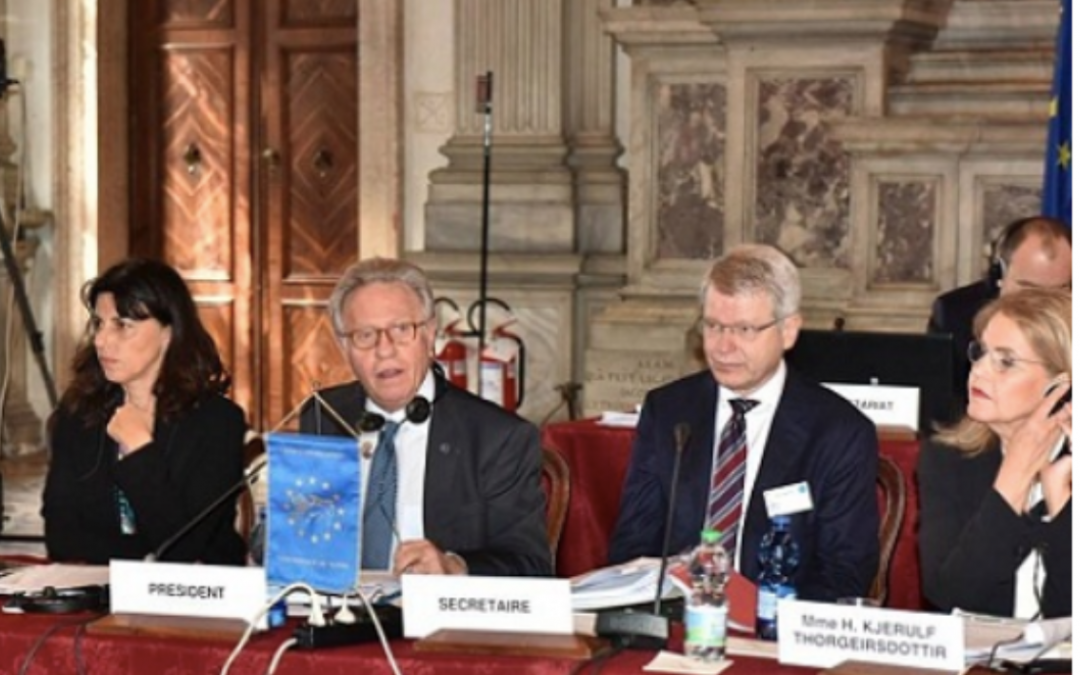
by Herdís Þorgeirsdóttir | 27.10.2020 | Almanak
Feneyjanefnd samþykkti á aðalfundi í október sl þrjú álit sem ég var einn höfunda. Ásamt þremur öðrum vantir fn ég að skýrslu um saknæmi þess að kalla eftir friðsamlegum en róttækum breytingum á stjórnskipun frá sjónarhóli Mannréttindasáttmála Evrópu, Frá því því 2018 hef ég ásamt þremur öðrum ráðlagt stjórnvöldum á Möltu sem vinna að breytingum á stjórnskipun landsins sem þótt hefur ábótavant, ekki síst í ljósi spillingar í stjórnarfari undangengin mörg ár. Fyrsta álitið unnum við í árslok 2018. Á grundvelli þess komu stjórnvöld með tillögur að breytingum sem við yfirfórum og skiluðum áliti um í júní 2020. Í kjölfarið undirbjuggu stjórnvöld frumvörp til breytinga á stjórnlögum og öðrum lögum til að betrumbæta stjórnarfar í landinu, þ.á.m. breytingar á því hvernig dómarar eru skipaðir, embætti forseta, umboðsmanns og fleira. Þau frumvörp, nokkur þeirra höfðu þegar verið samþykkt sem lög, þegar síðasta álit okkar var samþykkt í október.
Í nýjasta álitinu varðandi breytingar á stjórnskipun Möltu er lögð rík áhersla á mikilvægi þess að haft sé samráð við almenning í landinu um breytingar á grundvallarlögum.
Sjá hér kafla úr nýjasta álitinu – en þessi ummæli Feneyjanefndar hafa orðið tilefni mikillar umræðu í landinu þar sem stjórnvöld hafa verið gagnrýnd fyrir að hafa almenning ekki með í ráðum í breytingum á stjórnskipun landsins sem mun hafa varanleg áhrif á framtíð og samfélag á Möltu:

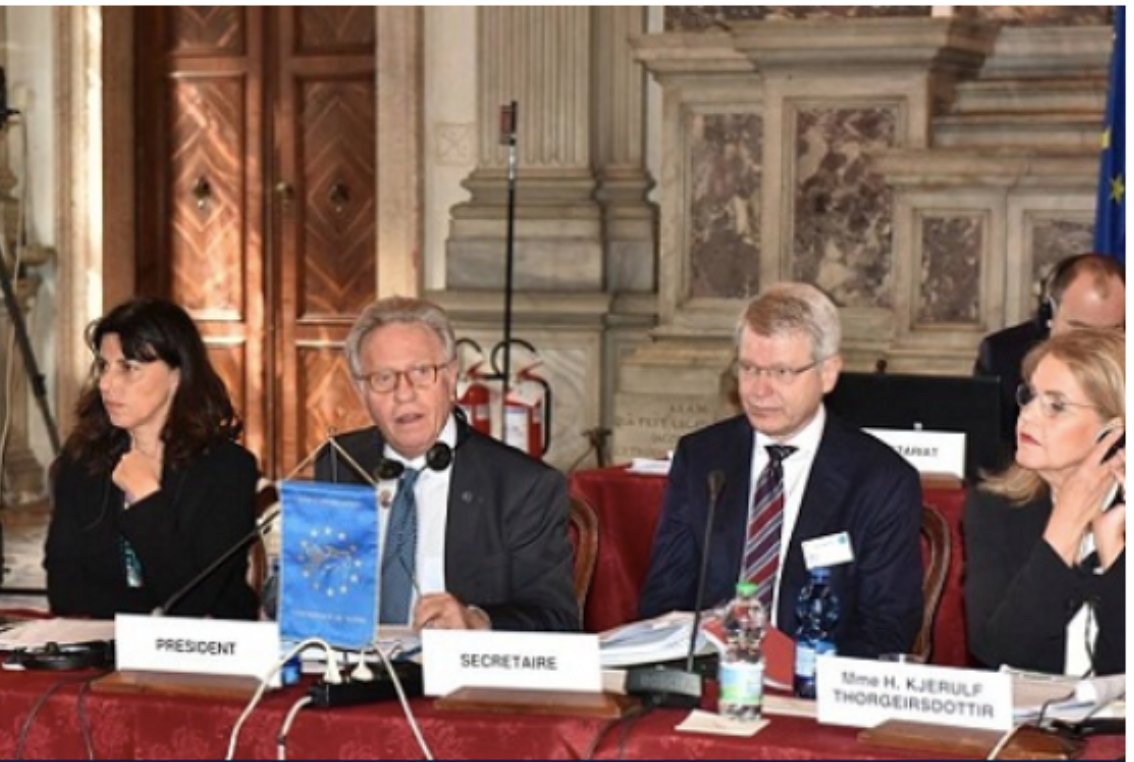
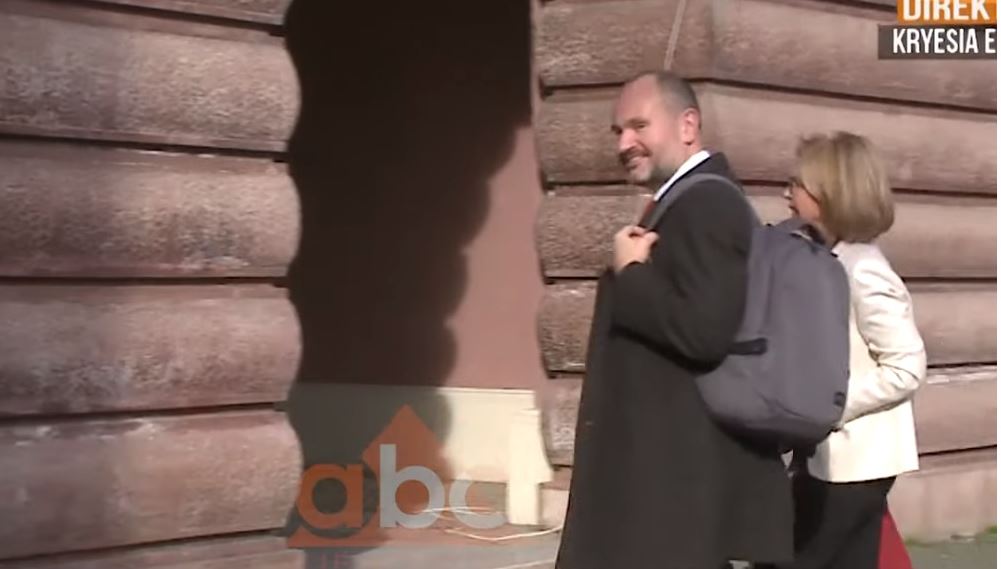
by Herdís Þorgeirsdóttir | 11.02.2020 | Almanak
Ferð til Albaníu á vegum Feneyjanefndar til að fara yfir drög að lögum um fjölmiðla sem meirihluti þingsins þar í landi samþykkti í desember en forseti neitaði að undirrita og sendi aftur til þingsins. Það var þingmannasamkunda Evrópuráðsins sem fór þess á leit við Feneyjanefnd að láta frá sér álit um þetta umdeilda lagafrumvarp sem snýr ekki síst að frelsi fjölmiðla á netinu og annarra sem halda úti netsíðum um stjórnmál og samfélagsmál. Á myndinni eru fulltrúar Feneyjanefndar á funi með forseta landsins í höfuðborginni Tirana.
http://abcnews.al/anti-defamation-package-venice-delegati…/…
https://www.albaniandailynews.com/index.php?idm=39382&mod=2
…See More
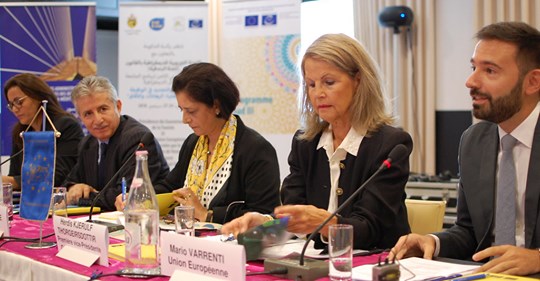
by Herdís Þorgeirsdóttir | 11.12.2019 | Almanak, Fréttir

Herdis fyrir utan RÚV í Efstaleiti 2012 (ljósmynd Mbl. Eggert Jóhannesson).
Herdís Kjerulf Þorgeirsdóttir er meðal þeirra sem sóttu um starf útvarpsstjóra. Ríkisútvarpið tilkynnti í gær að 41 hefði sótt um stöðuna. Herdís staðfestir þetta í samtali við mbl.is.
Herdís er doktor í lögum með tjáningarfrelsi fjölmiðla sem sérsvið. Hún er einnig menntaður stjórnmálafræðingur með framhaldsmenntun frá Bandaríkjunum. Herdís er fyrrverandi lagaprófessor, með réttindi til að starfa sem héraðsdómslögmaður.
Hún er sérfræðingur á sviði vinnuréttar og jafnréttismála fyrir Evrópusambandið og hefur komist til æðstu metorða í Feneyjanefnd Evrópuráðsins sem er nefnd lögspekinga í stjórnskipun og mannréttindum. Herdís var fyrsti ritstjóri Mannlífs og síðan útgefandi og ritstjóri Heimsmyndar.
Svanhildur Hólm Valsdóttir, aðstoðarmaður fjármála- og efnahagsráðherra og fjölmiðlakona, er einnig meðal umsækjenda um stöðu útvarpsstjóra Ríkisútvarpsins.
Ríkisútvarpið hyggst ekki gefa út lista með nöfnum umsækjenda, en Steinunn Ólína Þorsteinsdóttir, leik- og fjölmiðlakona, og Elín Hirst hafa báðar tilkynnt að þær hafi sótt um stöðuna.
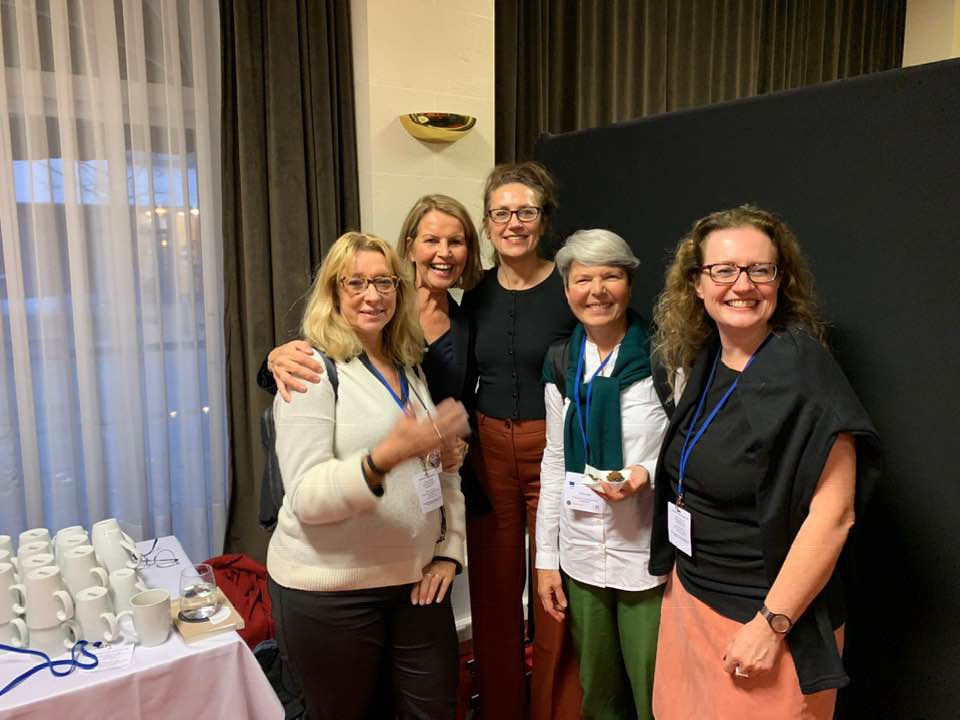
by Herdís Þorgeirsdóttir | 28.11.2019 | Almanak

Á myndinni eru Maria Rosario prófessor við lagadeild Lissabonháskóla, Herdís, Linda Senden prófessor við háskólann í Utrecht, Christa Tobler prófessor í Basel og Nicole Mathé, lögmaður frá Vín.
Sótti árlegan fund teymis lögfræðinga frá aðildarríkjum Evrópusambandsins og Evrópska efnahagssvæðisins EES, á vettvangi jafnréttislöggjafar og vinnuréttar, sem ég hef starfað með frá árinu 2003. Við fundum árlega í Brussel en á þess á milli felst starf okkar í því að leggja mat á framkvæmd hinna ýmsu þátta jafnréttislöggjafar í aðildarríkjum.
Sjá hér grein mína í European Equality Law Review um vernd gegn einelti og áreitni á vinnustað í kjölfar kvörtunar um brot á jafnréttislögum, sem var birt á þessu ári.












